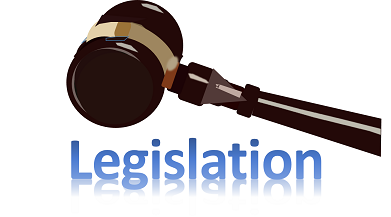Safeguarding News November 2023
As the chilly embrace of winter sets in, we are delighted to bring you the final safeguarding newsletter of 2023, a snapshot of many of the newsworthy items that hit the headlines during November. Season's Greetings to all our readers from the team here at SAFEcic and we wish you a peaceful break, whatever your plans are for the festive period.
Training Schedule
Our latest training schedule is listed below and feel free to share this email with your colleagues and they too can join our newsletter database.
To sign up simply click here.
Services Update
SAFEcic is also accepting many more bookings for its Rapid Review Service, its face to face safeguarding training and audit services. There is also a packed calendar of blended learning events available to book for your organisation. The courses are a very cost effective way of training your staff and volunteers.
SAFEcic Blended Learning Training Calendar
Leading on Child and Adult Safeguarding
Safeguarding Training, Leading on Child and Adult. Online course plus Zoom
Tue 9 January 2024
10:30 - 12:00 GMT
Safeguarding Training, Leading on Child and Adult. Online course plus Zoom
Thu 8 February 2024
10:30 - 12:00 GMT
Safeguarding Training, Leading on Child and Adult. Online course plus Zoom
Tue 12 March 2024
10:30 - 12:00 GMT
Safeguarding Training, Leading on Child and Adult. Online course plus Zoom
Tue 16 April 2024
10:30 - 12:00 GMT
Safeguarding Training, Leading on Child and Adult. Online course plus Zoom
Wed 8 May 2024
10:30 - 12:00 GMT
Safeguarding Training, Leading on Child and Adult. Online course plus Zoom
Tue 11 June 2024
10:30 - 12:00 GMT
Safeguarding Training, Leading on Child and Adult. Online course plus Zoom
Tue 9 July 2024
10:30 - 12:00 GMT
Standard Child and Adult Safeguarding
Safeguarding Training, Standard Child and Adult. Online Course plus Zoom
Tue 13 February 2024
10:30 - 12:00 GMT
Safeguarding Training, Standard Child and Adult. Online Course plus Zoom
Wed 27 March 2024
10:30 - 12:00 GMT
Safeguarding Training, Standard Child and Adult. Online Course plus Zoom
Thu 16 May 2024
10:30 - 12:00 GMT
Safeguarding Training, Standard Child and Adult. Online Course plus Zoom
Tue 2 July 2024
10:30 - 12:00 GMT
Safeguarding: Trustees’ legal responsibilities
Safeguarding: Trustees' legal responsibilities. Online Course plus Zoom
Wed 31 January 2024
10:00 - 11:30 GMT
Safeguarding: Trustees' legal responsibilities. Online Course plus Zoom
Thu 14 March 2024
10:00 - 11:30 GMT
Safeguarding: Trustees' legal responsibilities. Online Course plus Zoom
Tue 21 May 2024
10:00 - 11:30 GMT
Safeguarding: Trustees' legal responsibilities. Online Course plus Zoom
Wed 10 July 2024
10:00 - 11:30 GMT
Safer Recruitment Training. Online course plus 2 Hr Live Online training
Thu 4 January 2024
10:00 - 12:00 GMT
Safer Recruitment Training. Online course plus 2 Hr Live Online training
Wed 14 February 2024
10:00 - 12:00 GMT
Safer Recruitment Training. Online course plus 2 Hr Live Online training
Thu 25 April 2024
10:00 - 12:00 GMT
Safer Recruitment Training. Online course plus 2 Hr Live Online training
Tue 4 June 2024
10:00 - 12:00 GMT
Managing and Leading on International Safeguarding
Managing and Leading on International Safeguarding Training. Online course plus Zoom
Wed 28 February 2024
10:00 - 11:30 GMT
SAFEcic's free hub resources by setting are available through the SAFEcic.co.uk main menu. Alternately you can bookmark the links below:
Education | Dental | Charities | GP & Primary Medical Services | Fath Groups | Entertainment & Leisure | Working Overseas |
Legislation

England, Wales, Scotland, Northern Ireland
1. Possession of Nitrous oxide is now illegal
The Home Office have updated the law to make possession of nitrous oxide illegal from 8 November 2023 if it is, or is likely to be, wrongfully inhaled, by classifying it as a Class C drug under the Misuse of Drugs Act 1971 and placing it in Schedule 5 to the Misuse of Drugs Regulations 2001.
The Nitrous oxide ban: guidance explains these changes to the law, including what it means for legitimate users of nitrous oxide and how to ensure you comply with the new legislation.
Northern Ireland
2. New ‘up-skirting,' ‘cyber-flashing,' 'down-blousing,' position of trust and other offences come into effect in Northern Ireland
The changes to the law on sexual offending mark the final stage of the implementation of the Justice (Sexual Offences and Trafficking Victims) Act (Northern Ireland) 2022 – a key area of the Department’s legislative reform programme.
The changes to the law include:
- Four new offences to capture the specific and highly intrusive behaviours of what is commonly known as, “up-skirting” and “down-blousing”. They relate to the observing or recording of a person’s genitals, buttocks, breasts or underwear without a person’s consent;
- The new offence of “sending an unwanted sexual image” to capture the behaviour of those who intentionally send an image of their genitals or sexual activity to another person without that person’s consent. This is commonly known as “cyber-flashing”;
- Four new offences designed to tackle the particular behaviour of an adult pretending to be a child and making a communication with a child under 16 with a view to sexual grooming. These act as a precursor to more serious grooming behaviours and build on existing child grooming protections;
- Extending the scope of the established abuse of position of trust offences to capture those adults in a position of trust who knowingly coach, teach, train, supervise or instruct a child on a regular basis in the area of sport or religion; and
- Amending the existing offence of disclosing a private sexual photograph and film with intent to cause distress to bring the behaviour of threatening to disclose a private sexual photograph and film with intent to cause distress within its scope.
Inquiry & Review Reports

1. Independent Inquiry into the issues raised by the David Fuller Case publishes Phase 1 Report
The Independent Inquiry into the issues raised by the David Fuller case has been established to investigate how David Fuller was able to carry out inappropriate and unlawful actions in the mortuary of Maidstone and Tunbridge Wells NHS Trust and why they went apparently unnoticed.
In December 2021, David Fuller, an electrical maintenance supervisor with Maidstone and Tunbridge Wells NHS Trust, was convicted of the murders of Wendy Knell and Caroline Pierce in 1987. On his arrest, police officers conducted a search of his home address. This search uncovered printed photographs and video images, held on hidden computer hard drives of Fuller performing sexual acts on deceased people. The subsequent police investigation found that Fuller had sexually abused at least 100 deceased women and girls in the mortuaries of the hospitals in which he had worked. His victims’ ages ranged from 9 to 100 years old. His offences took place between 2005 and 2020. Fuller was convicted of the mortuary offences under the Sexual Offences Act 2003, at the same time as his conviction for the murders of Wendy and Caroline.
2. WRU Independent Review into allegations of bullying, sexism and sexual harassment published
The review makes around 36 recommendations in total, and the Welsh Rugby Union has already committed to ensuring that all of the recommendations are actioned.
On 23 January 2023 BBC Wales Investigates reported “allegations of bullying, sexism and sexual harassment that strike at the heart of Welsh Rugby”. This included a failure to support rugby for women and girls, bullying and use of sexist, racist and homophobic language. The allegations sparked an outcry and over the following days the Welsh Rugby Union (WRU) announced a review by a panel of three people according to published terms of reference.
Research Reports, Consultations and Studies

Research Reports, Consultations and Studies
1. Research Briefing: Rehabilitation of Offenders Act 1974 provides an overview of the Rehabilitation of Offenders Act 1974 which provides for some convictions and cautions to become "spent". The Rehabilitation of Offenders Act 1974 aims to give those with convictions or cautions the chance – in certain circumstances – to wipe the slate clean and start afresh. This research briefing applies to England and Wales. The amendments and changes came into effect on 28 October 2023.
2. Research Briefing on Duties to Report Child Abuse in England
Current position
There is currently no general statutory obligation for individuals in England to report child abuse. Government statutory guidance on safeguarding, says “anyone who has concerns about a child’s welfare should make a referral to local authority children’s social care and should do so immediately if there is a concern that the child is suffering significant harm or is likely to do so.” While this does not impose a legislative requirement to report abuse, it creates an expectation that those working with children will comply with the guidance unless there are exceptional circumstances.
In addition, some individuals are required to report child safeguarding concerns under standards or codes of conduct set by their professional regulatory body. A failure to adhere to such standards may result in misconduct or fitness to practise proceedings against them.
Mandatory reporting duty
There have been calls for a mandatory duty to report known or suspected child abuse and neglect to be introduced for specific groups, such as social workers and teachers. Proponents argue that a mandatory reporting duty would offer greater protection to children. However, others fear it could create a ‘needle in the haystack’ effect and result in a ‘tick-box approach’.
The final report of the Independent Inquiry into Child Sexual Abuse, published in October 2022, said children had suffered as a result of “a marked absence of a cohesive set of laws and procedures in England and in Wales that require individuals working with children to report child sexual abuse”.
The report recommended the UK Government and the Welsh Government introduce legislation placing certain individuals – ‘mandated reporters’ – under a statutory duty to report child sexual abuse in prescribed circumstances (for example, where they observe recognised indicators of sexual abuse). The report recommended it should be a criminal offence for mandated reporters to not report child sexual abuse when a child or perpetrator discloses it to them, or they witness a child being sexually abused.
In April 2023, the UK Government committed to introduce, subject to consultation, a mandatory reporting duty for those working or volunteering with children to report child sexual abuse.
Following on from an earlier call for evidence, on 2 November 2023, the Government launched a consultation setting out proposals for a mandatory reporting duty and seeking views on “a small but significant set of undecided policy questions.” The consultation closes on 30 November.
Following a previous consultation in 2016, the Government decided against introducing a mandatory reporting duty.
Regulatory Bodies

Civil Nuclear Constabulary (CNC) links up with UK's leading domestic abuse charity
The CNC is proud to announce a partnership with Refuge in a bid to support all abuse victims. Refuge is the UK’s largest domestic abuse charity, and the newly announced links are a huge step in ensuring the constabulary has support in place for any employee who needs it. The partnership also allows CNC to provide help to any victim of domestic abuse carried out by a force employee, who is subject to internal misconduct proceedings.
Line managers and Domestic Abuse Champions can refer anyone directly to Refuge, or individuals can self-refer.
Refuge can be contacted free of charge any time of the day or night by calling their national domestic abuse helpline on 0808 2000 247, which can offer a variety of support depending on circumstances.
The charity’s website has more resources, including culturally specific services, support for disabled women, support for children, information on economic abuse and coercive control, and how to secure your technology.
Refuge also supports male victims with one-stop-shop and support in the community services, as well as advice and support available via the Men’s Advice Line.
Online Safety

1. Online safety rules: what you need to know, Ofcom has written their guide to the new rules.
Ofcom is the regulator for online safety in the UK, under the Online Safety Act. Its job is to make sure online services, like sites and apps, meet their duties to protect their users.
Regulated services will have to follow various rules, including protecting users from illegal content and activity online, as well as protecting children from harmful content and activity online. Some services might have other duties to meet, so that:
- people have more choice and control over what they see online
- services are more transparent and can be held to account for their actions, and
- services protect freedom of expression.
Ofcom will make sure that regulated services follow the rules. Ofcom's role is to make sure that regulated services take appropriate steps to protect their users. We don’t require companies to remove particular posts, images or videos, or to remove particular accounts. Its job is to build a safer life online by improving the systems companies use to prevent harm.
Ofcom will have a range of tools to make sure services follow the rules. After consulting on them, they will set codes of practice and give guidance on how services can comply with their duties. The new rules will come into force once the codes and guidance are approved by Parliament.
Under the new rules, Ofcom will have powers to take enforcement action, including issuing fines to services if they fail to comply with their duties. The powers are not limited to service providers based in the UK.
In carrying out the regulatory responsibilities, they always take account of users’ rights to privacy and freedom of expression.
The rules are different for different types of online service These services can be access on Online safety rules: what you need to know - Ofcom
- User-to-user services
- Search services
- Video-sharing platforms
- Services with pornographic conte
Many online services already provide ways for you to report harmful content or behaviour, or complain about something you’ve seen. If you have a problem with something you have seen or experienced on an online service, reporting directly to the service should be your first step.
If you have done that and remain concerned, you can tell Ofcom.
Ofcom cannot respond to or investigate individual complaints.
Call 999 in life-threatening emergencies
You should call the police when a crime is in progress, or when someone is in immediate danger.
2. Conversations with strangers: Stopitnow launch their new film Spotlight to deter online grooming
With research finding that more than one in four (28%) UK adults regularly speak with people they do not know online, today Stop It Now are pleased to announce the release of a new online film warning adults engaging in sexual conversations with under-16s that this behaviour is illegal and has severe consequences.
Beyond the harm done to the children groomed, these consequences include irreversibly damaging the adult’s relationships with loved ones, and a potential prison sentence.
The new online film, Spotlight, is part of the Stop It Now! campaign, which offers support to anyone worried about their own or someone else’s sexual thoughts about or behaviours towards children via its free and confidential helpline. The film aims to shine a light on this confronting subject, giving clear information about the law and consequences associated with online grooming.
Its release coincides with new data that shows more than half of adults (55%) who speak with strangers online are not confident that they know the age of the other person. Furthermore, when asked what they would do if they were to find out that the person they’re speaking with is under 16, 1 in 10 (11%) men over the age of 25 stated they wouldn’t immediately stop the conversation.
Though not illegal for an adult to have an online conversation with someone under the age of 16, in the UK it is illegal for an adult to engage in sexual communications with someone under 16 – also known as online grooming.
In the past two years, the Stop It Now! helpline has seen a 64% increase in the number of people making contact concerned about either their own or a loved one’s online grooming behaviours. Similarly, the NSPCC recently warned that online grooming is at an all-time high, with an 82% rise in reported incidences over the past five years.
3. Children must understand risk as UK schools say pupils abusing AI to make sexual imagery of other children
‘Urgent action’ is needed to prevent this technology being abused further in schools.
Initial reports show schoolchildren in the UK are now using AI to generate indecent images of other children, with experts warning urgent action is needed to help children understand the risks of making this sort of imagery. The UK Safer Internet Centre (UKSIC) says it has now begun receiving small numbers of reports from schools that children are making, and attempting to make, indecent images of other children using AI image generators.
Teachers are warning that pupils are using the technology to create imagery which legally constitutes child sexual abuse material.
Children may be making this imagery out of curiosity, sexual exploration, or for a range of other reasons, but images can quickly get out of hand and children risk “losing control” of the material, which can then circulate on the open web. Parents and teachers are urged to help children understand the risks associated with making AI generated imagery of this sort.
UKCIS says this imagery can have many harmful effects on children – and warns it could also be used to abuse or blackmail children. Schools must ensure their filtering and monitoring systems can effectively block illegal material across their school devices to combat this emerging threat.
Imagery of child sexual abuse is illegal in the UK, whether AI generated or photographic – with even cartoon or less realistic depictions still being illegal to make, possess, and distribute.
4. Youth worker posed as a teenage girl to abuse boys online
A National Crime Agency investigation identified Cameron Osman, 45, from Southampton, as the person behind online alias ‘Lizzielemon’, which contacted victims on Instagram, MyLol and Love Crush, before moving them on to Google Hangouts, Discord and Skype.
Osman engaged them in sexualised chat revolving around a fantasy online world with Osman pretending to be a teenage girl. He never identified himself, instead telling victims his camera was broken.
Osman would say that ‘Lizzielemon’ was from Bristol or Birmingham, that he had a fetish for dominating boys in school uniform and sports kit, and for conducting teacher/student role plays.
The offending took place between 2020 and 2021.The NCA tracked Osman down to a friend’s address in Crowborough, East Sussex, in September 2021 and arrested him.
He had resigned from his job at a holiday camp activity centre in Hailsham a few days earlier.
His laptop and mobile phone were seized, and Osman was found to have contacted 76 boys in the UK aged between 12 and 16 during the offending period. All have been safeguarded. Officers found no evidence of Osman grooming children at the activity centre.
Law enforcement partners in the US uncovered chat logs showing sexualised communication by Osman with underage boys in 27 countries. He also searched online for underage boys in Colombia, where he was planning to visit.
The investigation continued after Osman was released on bail, and he proceeded to offend again, leading to his re-arrest on 27 March this year after a further victim was identified. Osman pretended to be a younger man on this occasion and shared photos of himself.
Osman pleaded guilty to 36 separate charges at St Albans Crown Court on 2 May including attempting to incite a child to engage in sexual activity, causing a child to engage in sexual activity, sexual communication with a child, and making two category C indecent images of children.
He was sentenced to 13 years imprisonment, plus five years on licence, at the same court today (1 November). Osman was also given an indefinite Sexual Harm Prevention Order.
5. Assistant Head Teacher caught with 11,500 child abuse images
An assistant head teacher from Yorkshire has pleaded guilty to making over 11,500 images and videos of child abuse following a National Crime Agency investigation.
Gareth Mellor, 43, who now lives in Uttoxeter, Staffordshire, was also the safeguarding lead at the high school he worked at in Wakefield.
He was tracked down by NCA investigators after making a Bitcoin payment for indecent images of children via an encrypted cloud storage service.
The NCA identified that his email address had been used to set up accounts on other sites in an attempt to acquire child abuse material.
In May 2021, officers arrested Mellor at his home address and seized a number of his devices. His phone had cryptocurrency applications installed on it, as well as files associated with the storage platform.
Officers downloaded the contents of his two cloud storage accounts, and a forensic review revealed more than 11,500 indecent images and videos of children in categories A-C (A being the most extreme).
The images, which had not been taken by Mellor, were predominantly of teenage girls.
Later, investigators were able to evidence that Mellor had accessed one of his accounts after being bailed, in an attempt to delete the evidence. At Leeds Crown Court, Mellor pleaded guilty to three offences relating to the making of indecent images of children.
He is due to be sentenced on 7 December 2023 at Leeds Crown Court.
Internet data provided by the cloud storage service showed that a second individual had access to one of Mellor’s accounts. He has been identified and is separately under investigation.
The school Mellor worked for terminated his employment following his arrest, and none of the offending related to its pupils.
Worthy of Note

New phase of campaign encourages students to say Enough to abuse
The government’s innovative Enough campaign will join forces with over 30 UK universities in a bid to protect women and girls on university campuses.
Launching its third phase, the Enough campaign targets potential perpetrators of violence against women and girls.
For the first time, it will partner up with universities to deliver bespoke campaign materials designed to reflect the scenarios and forms of abuse that students could witness.
This fresh phase of the campaign follows statistics from the Crime Survey for England and Wales, in the year ending March 2022, which revealed full-time students were more than 4 times as likely to have experienced sexual assault within the last year than those in any other type of occupation.
The campaign provides advice to anyone witnessing abuse, including students, on the safe ways to intervene if they see an incident of violence against women and girls, ranging from sexual harassment – on the street, on public transport or at work – to sharing intimate images of someone without their consent; coercive control in a relationship; or unwanted touching.
This phase will see a wider rollout of the campaign’s STOP prompt – Say something, Tell someone, Offer support, Provide a diversion – which provides the public with multiple options for intervening if they witness abuse in public places and around universities.
Graphics on posters, digital screens and university social media accounts will encourage students to act if they witness abuse, as part of wider efforts to make university campuses safer.
Alongside the partnership with the Higher Education sector, the latest phase of Enough also contains billboard and poster advertising on public transport networks and in sports clubs, as well as social media adverts, including on platforms relevant to younger audiences.
Reasons to Remain Vigilant in All Aspects of Safeguarding
1. Far-right ‘reverend’ who exchanged letters with terrorists convicted of stirring up racial hatred
The editor of a far-right website has been convicted of possessing racially inflammatory material including stickers that had been posted in and around Liverpool in 2021 as part of a campaign directing people to a website calling for the establishment of a white master race.
James Costello, 38, was found with the stickers alongside other racist material and recordings he hosted on a website he ran. They were racially offensive and aimed to recruit people to join the violent destruction and subjugation of people of colour, black people and Jewish people.
Costello, who called himself the Reverend, was found guilty of 18 offences of stirring up racial hatred after a trial at Liverpool Crown Court following an investigation by Merseyside Police.
He was sentenced to five years' imprisonment.
2. Man sentenced for firearms importation had searched the web for school shooting information
A man from Scotland who attempted to buy a gun and ammunition online and searched the web for details of a school shooting and primary school holidays has been sentenced.
Following an operation by the Organised Crime Partnership, a team of officers from the National Crime Agency and Police Scotland, James Maxwell, 28, from Leven in Fife, was arrested in January 2023 and charged with two counts of purchasing and attempting to acquire and possess a firearm and two counts of purchasing and attempting to acquire or possess ammunition.
Maxwell had attempted to source a firearm and hollow point bullets online.
When OCP investigators made checks on his phones they found that he had searched the web for ‘Dunblane’, ‘primary schools in Glasgow’, ‘and ‘when do schools break up for Christmas holidays’.
Maxwell pleaded guilty to the firearms offences on 21 September at Edinburgh High Court. He also admitted making an indecent image of a child and possession of extreme pornographic images.
He was sentenced to five years in prison with an extended four year license period at the same court today (26 October).
3. British men jailed after investigation exposes travelling child abuse network
Two British men are in prison after the NCA proved they were part of a secret Europe-wide network whose members travelled the world to sexually abuse children. Christopher Behn from Essex, and John Thorogood from London, travelled to Asia and Africa respectively over several years to abuse vulnerable young boys. Both appeared separately in a series of abuse images seized from another member of the network - a Dutch national who was convicted in the Netherlands.
Behn, 68, was sentenced to 11 years in prison and a further six on licence, for sexually assaulting young boys in Vietnam over a 10-year period.
He was previously arrested by the NCA in 2020 and was already serving a nine-year sentence, after pleading guilty to abusing 11 children on a trip to Myanmar in 2016. However, NCA investigators, working with Dutch Police, were able to show there were a further 23 occasions where Behn committed abuse overseas between 2008 and 2018.
Behn’s travel history showed that he had visited Vietnam 18 times since 2006. Both Behn and the Dutch national had written diaries that described in graphic detail the abuse committed by the pair on many of these trips. The NCA also recovered conversations he had with other offenders via encrypted emails. They discussed children they had met and abused, payments made to victims and their families, and ways in which they could avoid detection by law enforcement.
The sentence handed down to him today will be served alongside the remainder of the nine years he was sentenced to in 2021.
Thorogood, 75, a former registered sex offender with convictions relating to indecent images of children (IIOC), was arrested by the NCA in December 2021. Investigators identified him from a number of images recovered from the Dutch national, which showed him sexually assaulting boys in Morocco in 2012.
Officers forensically examined his phone and computer and recovered over 200,000 IIOC in categories A-C. Some of the photos were taken by Thorogood and showed boys as young as one. Thorogood had used the same camera to take a picture of his suitcase, which had a luggage label showing flight details from London to Casablanca, Morocco, in July 2012, leading to his identification.
He pleaded guilty to seven counts, including sexual activity with a child, causing a child under 13 to engage in sexual activity, two counts of sexual assault of a child under 13, and three counts of making IIOC. He was remanded in custody will be sentenced at the same court on 14 November.
The NCA has identified a further four men based in the UK believed to have links to the network and investigations are ongoing in a number of countries across Europe.
4. A man who stole from two women, one in her 90s, is beginning a three-and-a-half-year prison sentence
A man who stole from two women – one in her 90s – is beginning a three-and-a-half-year prison sentence. On May 1 this year, Geoffrey O’Brien attended the address of an elderly resident in Bedlington, claiming he had cleaned her guttering and demanded payment. He then asked for a glass of water, at which point the woman left the front door to kindly oblige his request.
O’Brien then entered the house uninvited and stole her purse, containing cash and bank cards, which was on the table inside. The victim later noticed her purse had been taken and informed a relative, who contacted the bank to find it had been used at a local shop to buy cigarettes.
Three days later, O’Brien went on to approach a lone woman who was walking through Bedlington when he yanked her bag from her shoulder. He did this with enough force to nearly knock the woman off her feet, forcibly shoving her and making off with her belongings.
Both incidents were reported to police, and after a review of CCTV, O’Brien was identified as prime suspect and was marked as wanted in connection with the offences. Within days, O’Brien, 29, of Ford Drive, Blyth was arrested and, only 24 hours later, was charged with one count of robbery, one count of burglary and one count of fraud by false representation.
He attended Newcastle Crown Court on October 26 where he pleaded guilty to all offences.
He was sentenced to three-and-a-half years’ imprisonment, was given a seven-year restraining order to protect each victim and was ordered to pay compensation too.
To report anyone acting suspiciously, contact police via the ‘Tell Us Something’ page of the Northumbria Police website, or call 101.
In an emergency, or if a crime is taking place, always ring 999.
5. Man who sexually targeted woman with dementia jailed
A man who sexually assaulted a 93-year-old woman with dementia while employed to deliver hot meals to elderly and vulnerable people has been jailed. Frank Greco, 59, of Leighton Avenue in Swindon, repeatedly assaulted the elderly woman in her own home between late March and mid-April 2022.
Having pleaded guilty to attempted rape, assault by penetration, and sexual assault at an earlier hearing, Greco was sentenced to over 14 years imprisonment on 10 November 2023 at Swindon Crown Court.
Greco, who worked delivering meals in the Swindon area, was caught after the victim’s son reviewed CCTV from inside his mother’s home. The footage uncovered numerous incidents of sexual assault against the victim who, due to her dementia, was unable to give consent or report what happened. Greco’s offending was so brazen that, at times, he would commit his crimes whilst others were in the house with him. The victim’s family immediately reported their findings to the police who arrested Greco and uncovered items in his car which suggested premeditation for his offences.
Greco was captured on the CCTV footage using an item found in the car during one of the assaults. He initially denied any wrongdoing after his arrest, but admitted his guilt once presented with the incriminating evidence.



